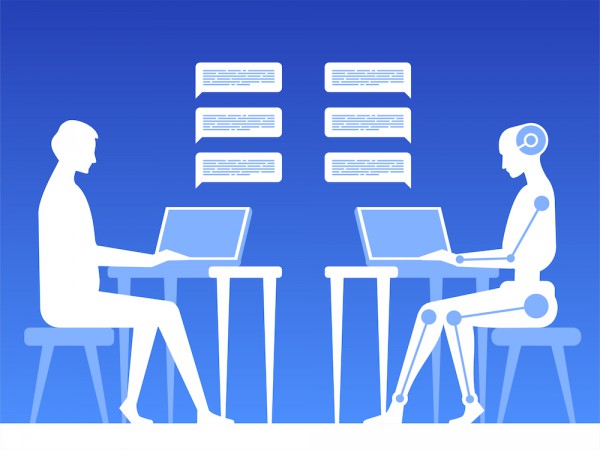Chatbots -- are they more artificial than intelligent? [Q&A]

When you contact a large organization it's increasingly likely that, in the first instance at least, you'll find yourself dealing with a chatbot rather than a real person.
Most of these are based on some form of AI, but are they really all that clever? Deon Nicholas, CEO and co-founder of Forethought, doesn't think so. We spoke to him to find out more and discuss whether there might be a better solution.
BN: What is a chatbot?
DN: A chatbot is a software application that conducts conversations online with a bot, instead of with a human. Generally, chatbots are used for customer service purposes, automating a portion of the interaction between a customer and a brand.
BN: You are known for saying 'Traditional chatbots are more artificial than intelligent', what do you mean by that? How is your solution different from a traditional chatbot?
DN: Companies that use chatbots claim that they are based in AI, but if you look under the hood, you'll see they're all only based on keywords or decision trees, fueling customer frustration by delivering a time-consuming and inaccurate experience. In comparison, human-centered AI fuels relationships, traditional chatbots fuel frustration. With chatbots, the human isn't at the center: go beyond the chatbot and think about what humans are good at that technology isn't.
Unlike traditional chatbots, Forethought's solutions provide customers with true AI that puts humans first. Instead of relying on decision trees or keywords like traditional chatbots, Forethought's AI uses cutting-edge Natural Language Understanding models that train themselves on real conversation history and knowledge base articles.
Many people think of AI as a simple chatbot, which really isn't intelligent at all. A chatbot is just an if/then decision tree. Our human-centered AI understands customer intent and sentiment, something traditional chatbots can't do. Forethought's AI goes beyond a chatbot by comprehending sentence structure, meaning, synonyms, tone, and nuance, and puts AI first to transform the customer experience and accelerate agent productivity.
BN: How can AI chatbots improve customer retention?
DN: Next-gen chatbots built on human-centered AI can assist companies in building relationships with customers through reliable, accurate solutions, enabling fast response times, and reaching customers where they're at, no matter what channel they're using -- all of which help to improve customer satisfaction and retention while at the same time boosting agent efficiency.
With the point solutions and traditional chatbots on the market today, companies typically have to choose one of those over the other (i.e., customer satisfaction or agent efficiency). The key is developing AI that is focused on the human experience throughout the entire support journey. Customers can self-serve when they want to, they can be instantly and automatically connected with the right agent for their question when preferred, and they can get answers from those agents faster due to AI assistance. That makes for happier customers and higher customer retention (and, I might add, higher employee retention).
BN: What is human-centered AI, and how does it improve workflow?
DN: Human-centered AI goes beyond the chatbot and thinks about what humans are good at that technology isn't, and how companies can use both together and effectively. It helps to make an easy transition from chatbot to speaking to a human and identifies personalization objectives and incorporates its features.
BN: What kinds of results are people seeing with AI-based chat?
DN: Recent results have shown that 78 percent of customers are willing to go out of their way to buy from a company with a better customer experience. In addition, 86 percent of customers have said they are willing to pay more for a great customer experience.
Two thirds (67 percent) of consumers today prefer self-service. They look to agents for help when they need it, but they won't tolerate long wait times.
Chatbots are the fastest-growing brand communication channel, with over 25 percent of businesses using them and a total of 1.4 billion people interacting with them.
PDQ, a customer of ours, recently told us our AI chat widget allowed them to cut response times with customers by 45 percent. Since 2018, Forethought's human-centered AI has reduced support resolution times by up to 30 percent, and has catapulted Forethought to triple its customer count in the past year, now supporting more than 10 million human interactions annually on behalf of its customers.
Photo Credit: Ico Maker/Shutterstock
